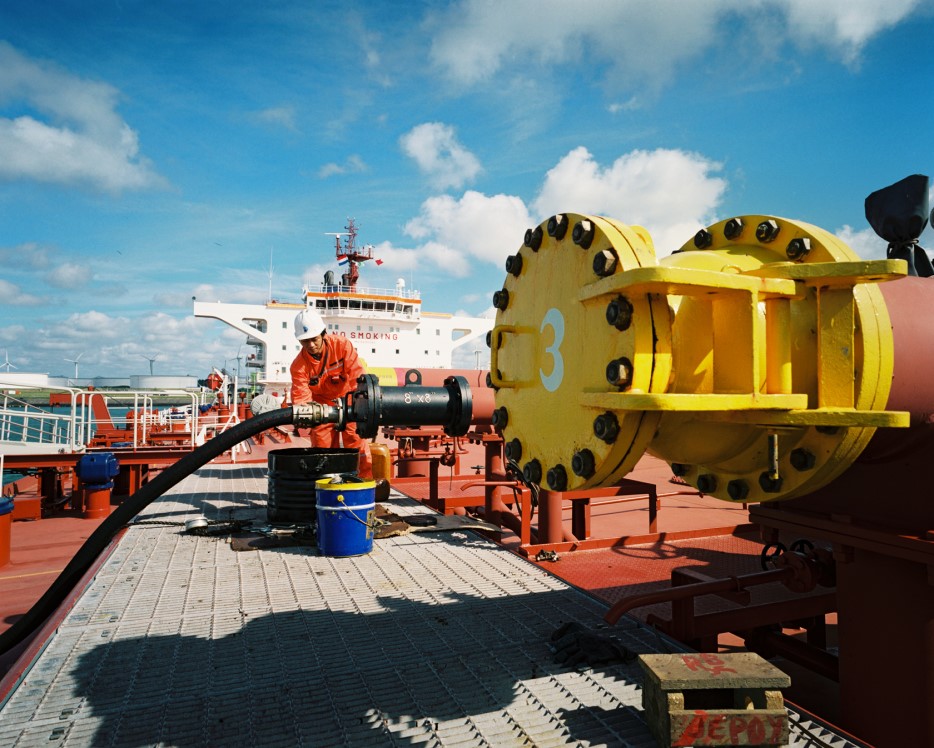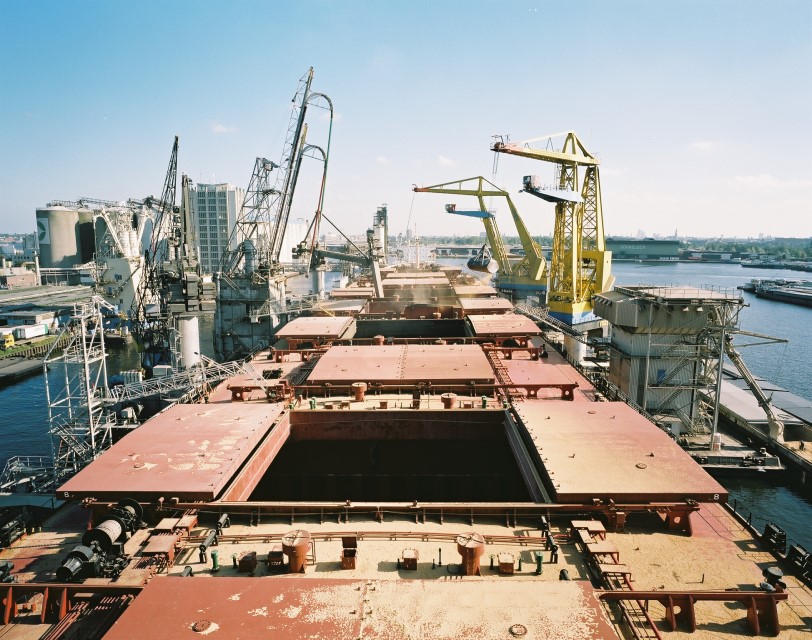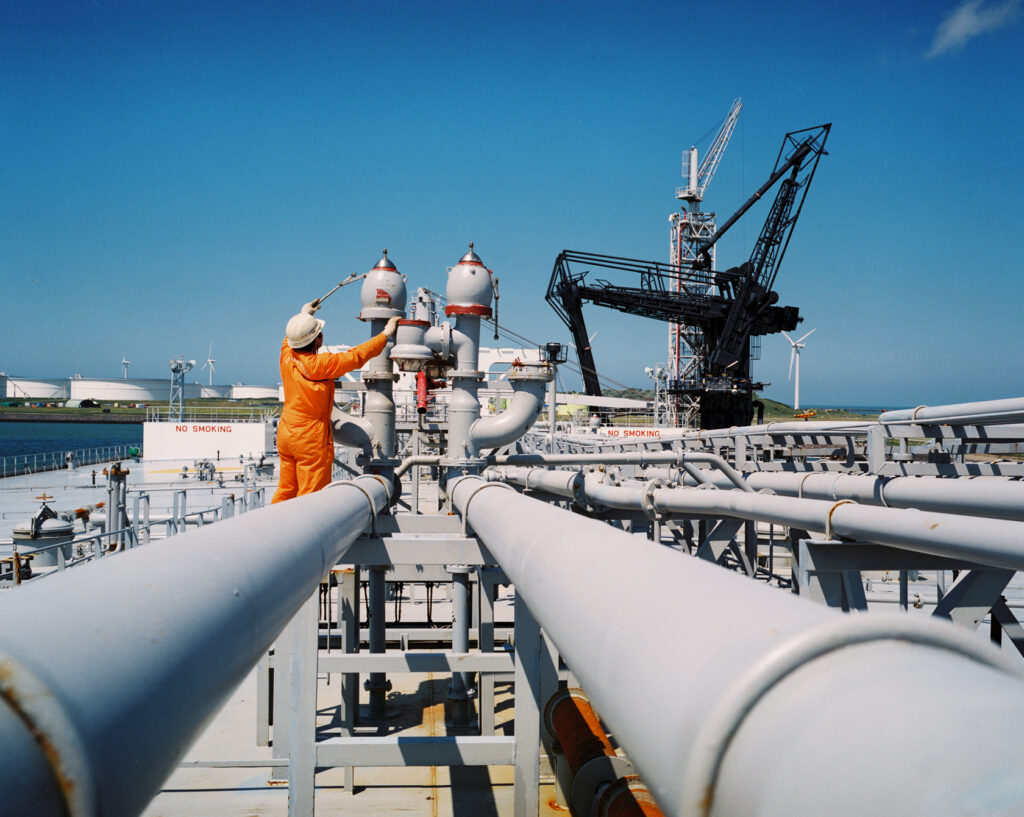On behalf of our clients we inspect the quality and quantity of different types of cargoes, ranging from oil to chemicals. We do this before loading and/or unloading of seagoing vessels, inland barges, tank trucks or trains, whatever medium is used for transhipment. Such to ensure our clients that their cargoes meet the expected and required quality standards.
Our clients rely on the expertise of our surveyors as a starting and reference point for beginning of any production process. Upon request we can also assist and oversee in the safe transhipment of the products during transhipment.
Download factsheet (PDF)
The vessel draft survey measures the displacement of the water both before and after the loading or unloading, with the resulting difference between the two displacements representing the weight of the cargo. Our surveyors work according to defined international guidelines when determining the weight of the cargo and consider several key factors while making their surveys.
Download factsheet (PDF)
Oil tankers and gas carriers carry large volume of bulk cargo, which not necessarily have to be unloaded in one terminal or port. Transhipment from vessel to smaller or bigger tankers safes extra cargo handling which saves time and therefore is a economically and logistically favourable option over using terminals. We have experience in STS operations in port and outside 12 mile zones. We handle ship-to-barge or barge-to-ship operations to ensure our clients all operations are performed in a secure and safe way.
Transoil offers a wide range of marine equipment and services for all ship to ship (STS) transfers of bulk liquids between all types of vessels around the world. Our experienced superintendents and mooring masters are dedicated to handle your STS transfers efficiently, safely and with respect for the ecological environment we are working in.
STS refers to transferring a ship’s cargo (oil or gas) from a merchant tanker or bulk carrier to a tanker or vessel positioned alongside. The STS operation can be performed either as the ships are at anchor or underway. In any case it requires proper conditions, the right equipment, highly experienced staff and official permission to perform such an operation.
Download factsheet (PDF)
A Bunker Survey is carried out to measure and ascertain the quantity of bunker on board at a specific time. This survey is produced the report that states the amount of bunker, usually Fuel Oil (FO) and Diesel Oil (DO), and sometimes Lubricating Oil (LO) is included. In surveying the stemmed bunkers we can assure the bunker purchaser the amount of bunkers purchased is also delivered and noted correctly on the BDN.
Download factsheet (PDF)
When buying, selling or chartering a vessel, an independent bunker and condition survey provides you with documented proof of the actual condition of the vessel. A visual inspection performed by one of our marine services experts also minimizes your commercial and contractual risks by ensuring that the quality of the bulk cargo shipped from the load port is the quality that arrives at the discharge port.
Our qualified inspectors provide you with documented independent proof of the actual condition of the vessel you are buying, chartering or using. The findings and the report that Transoil provides can be used to substantiate claims that may arise as a result of damage to the vessel or cargo.
Download factsheet (PDF)
At the present market rate, bunker cost is one of the largest operating expense incurred in a TC voyage. With such high costs involved, it becomes imperative for the charterers to know the exact bunker quantity onboard at the time of supplying bunkers.
To prevent bunker misappropriation Transoil is able to offer 221B Surveys (commonly known as Bunker Detective Surveys) to ship operators. We can offer our services globally as we are exclusive member for Europe in the ‘Bunker Detectives’ network
Download factsheet (PDF)
Whether you are the owner or the charterer, it is critical to have sound, reputable documentation of the condition of a vessel at the beginning and conclusion of a charter agreement. This information is crucial in the event of a dispute over the condition and maintenance of the vessel following a charter term.
Transoil’s experienced marine surveyors represent you. They inspect your vessel prior to the commencement of the charter.
They examine the equipment on board and document its condition and state of maintenance. At the end of the charter, he re-examines the vessel and documents any noteworthy changes.
Detailed reports are then given to all parties involved in the charter. The report can be a key piece of independent evidence that can protect your interests in the case of a dispute over the maintenance state or condition of a vessel at the conclusion of a charter.
Download factsheet (PDF)


